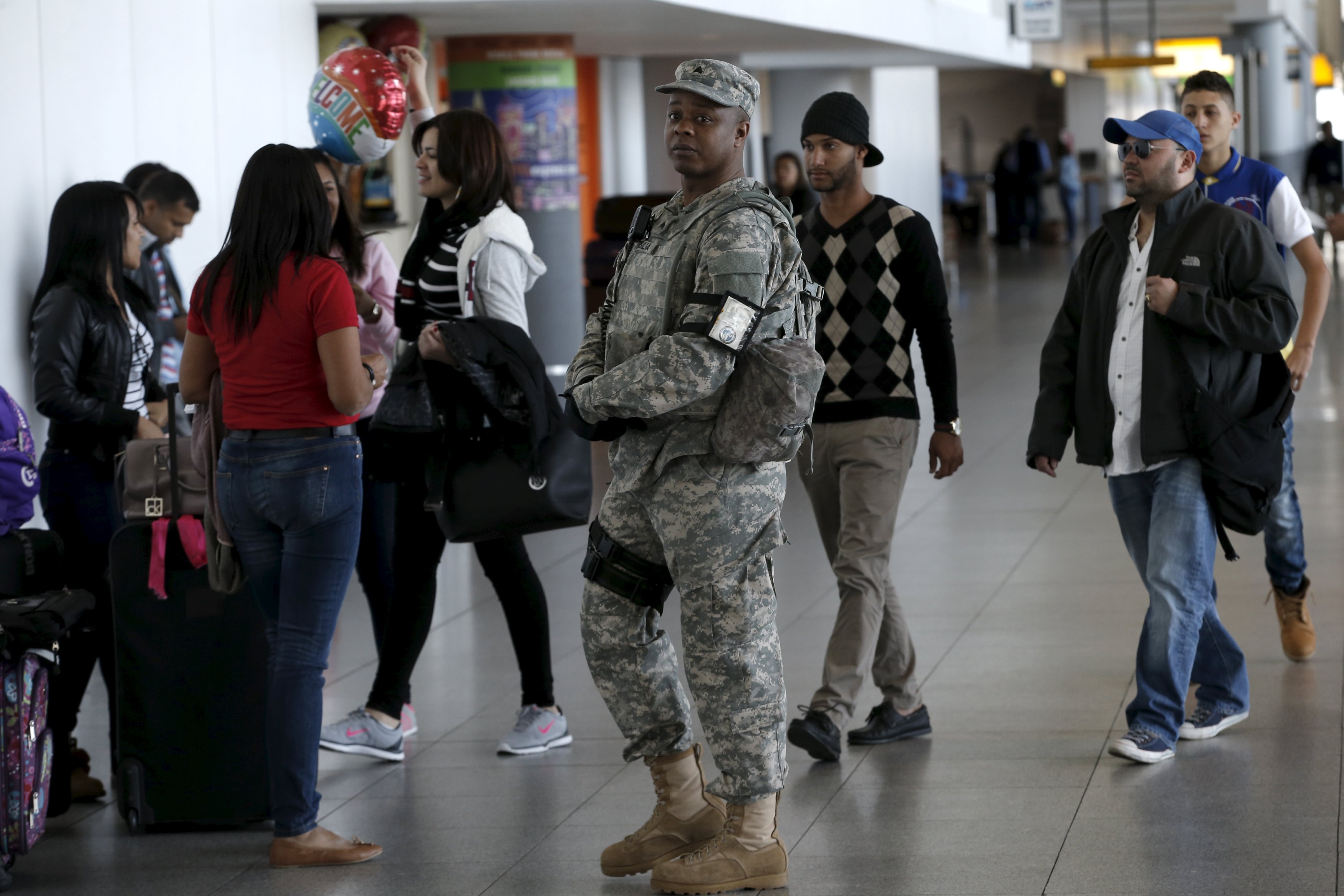
New York: Major US cities deployed police in large numbers, some with heavy weapons patrolling transit hubs, after at least 30 people were killed in attacks on a Brussels airport and subway, though officials said there was no evidence of specific threats to the United States.
New York, Los Angeles and Chicago stepped up their security and major airlines scrambled resources to cope with closings at the airport in Belgium's capital.
IS, a militant group that has gained control of large areas of Iraq and Syria and has sympathizers and supporters around the world, claimed responsibility for the attacks.
New York Mayor Bill de Blasio said that although there was no specific threat against the city, he had beefed up police presence and deployed a 500-officer special anti-terrorism unit.
He urged New Yorkers to go about their business as normal. "What the terrorists want is for us to change our ways," he told a news conference.
"We refuse to change who we are. We are going to respond to their efforts to create chaos by showing them order, by showing them our society functioning, our city functioning."
In addition to the increased police presence, New York State Governor Andrew Cuomo activated National Guard troops to provide extra security at New York City's two airports and at major railroad stations.
Officials in cities from Miami to Boston to Portland, Oregon, also said they had stepped up security although they were aware of no specific threats. Many of the wounded at the Brussels airport had severe leg injuries, according to officials, a pattern that suggests an explosion emanating from ground-level, such as from a bag.
"We have to keep an eye out for bags," one National Guardsman dressed in military fatigues and carrying a rifle said to a colleague as they passed through a security checkpoint at New York's John F. Kennedy International Airport.
Three US Mormon missionaries were injured in the airport blasts, the Church of Jesus Christ of Latter-Day Saints said.
IS was blamed for killing 130 people in Paris last November. In December, a married couple inspired by IS shot dead 14 people in San Bernardino, California.
A witness to Tuesday's attack at the Brussels airport said he heard shouts in Arabic shortly before two explosions ripped through a departure lounge.
European and US airports have extensive security in place to prevent weapons from being smuggled onto aircraft, but the attack took place in a waiting lounge before screening.
Some travellers on Tuesday said they hoped airports would further tighten security following the Brussels attack.
"Perhaps it should take place sooner, before you get through security. I find it reassuring," said Mary Ray, 71, a retired government trainer flying home to Manchester, England, from New York after a Caribbean cruise with her husband Malcolm. Ray, who walks with a cane, said she is happy to remove her shoes or have her hands swabbed as she passes through airport security: "I think it's a deterrent."
US President Barack Obama addressed the attacks briefly in a speech in Havana on his historic first visit to Cuba, vowing to support Belgium as it seeks out those responsible.
"This is yet another reminder that the world must unite. We must be together regardless of nationality or race or faith in fighting against the scourge of terrorism," Obama said.
"We can and we will defeat those who threaten the safety and security of people all around the world."
The attacks drew immediate response from the leading candidates in the race for the White House, with Republican front-runner Donald Trump repeating his call for tighter US border security.
Former US Secretary of State Hillary Clinton, the Democratic front-runner, vowed the attack would strengthen her drive to "defeat terrorism."